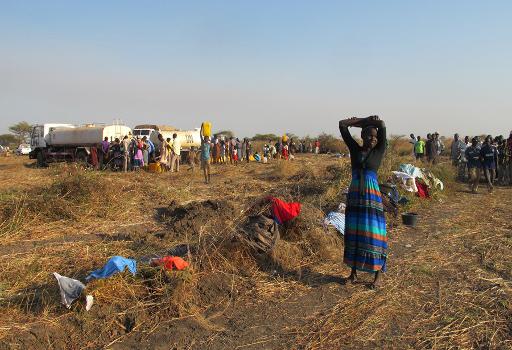Wrong, because what you need to know is over 95% of South Sudan's economy is centered around it's oil production. That region has oil that is such a high quality grade that according to oil analysts "you can basically drill it out of the ground and put it in your car with practically no refining." So, understand there are two major components to this conflict today; who will control the oil and neo-colonialism. To clarify further, let's go back to the Sudanese People's Liberation Movement (SPLM) Manifesto that was created in 1983. The manifesto begins by raising the question of the African (Black) and Arab people who inhabited pre-South Sudan - Sudan together. In that manifesto, the SPLM expressed the desire to establish a South Sudan while also acknowledging the existence of both peoples within the country. In fact, the manifesto wisely calls for the people of Sudan to discuss this question in the quest to develop a clear identity for the country. In other words, the question of African/Arab relations isn't being dealt with as a natural antagonism by the SPLM so why is it widely seen that way today? In comes the oil interests.
These African and Arab folks have inhabited Sudan together for literally thousands of years without the violent conflict that has marked that region over the last 25 years, expressly exhibited by the Darfar tragedy. The nomadic and agricultural communities in Sudan existed in relative peace for decades, but in the 80s, sophisticated oil interests, in their continued quest to find and exploit new oil reserve sources cheaply, zeroed in on the plentiful and raw opportunities in Sudan. Outside corporate interests led by old players; the U.S. and British companies like British Petroleum, Shell, Chevron, and Texaco, attempted to position themselves to take advantage of the projected oil boom in Sudan. So far, the winner in this shuffle seems to be the Chinese based National Petroleum Company which has thousands of exploited Chinese and African, workers, slaving to drill for oil. This race for profits and power at the expense of the Sudanese people has created havoc in the country. Accompanied by the backward and racist policies of the al-Bashir regime in Khartoum, in it's quest to gain control for it's own interests, the country was thrown into a chaos that has helped create the conditions for the new state of South Sudan.
Now, with the country barely old enough to be added to new maps, the first South Sudan government has experienced a major split between the president - Salva Kiir Mayadit, and ousted Vice President Riek Machar, who imperialism is saying is leading a group of loyal rebels in an effort to topple the Mayadit regime. There's apparently enough mayhem from both sides to go around, and the question looms...What the hell is going on? We believe the answer is the same answer that can be applied to pretty much every region in Africa today. The central problem is governments are attempting to establish foundations on top of a legacy of corruption, inequity, inequality, and injustice that is the continued landmark of colonialism and neo-colonialism. The entire economy of South Sudan is related to oil and the overwhelming majority of the control of that production is being managed by interests from outside of Africa. Any fool could see that this is obviously a formula for disaster, yet this type of political manipulation will continue in Africa until the people are properly organized to put a stop to it. That's why the best weapon we have right now is proper political education. The future of Africa is connected not to further secession that is fueled by the policies of imperialism and colonialism, but the unity of the African continent that is fueled by the desire to empower the masses of African people. The oil of South Sudan, along with the plentiful teak, zinc, and other minerals, belong to the people of South Sudan and Africa. So how do our people become empowered? First, the imperialist interests like China and the U.S. must be driven out of Africa and then their minions who simply desire to have a piece of the crumbs they leave must also be driven out, but this will only happen when the strategy outlined by Kwame Nkrumah is implemented throughout the African continent. The construction of the All African Committee for Political Coordination (A-ACPC), the fusing of the genuine revolutionary Pan-African political formations that are mass, meaning they are made up by the people of Africa to reflect their will and interests. The A-ACPC once organized, will form the All African People's Revolutionary Party which is the governing political party that will serve as the people's voice and vehicle to utilize the resources of Africa for development of the people for self determination. Then, if we decide we want to do business with China or whomever, it will be on our terms and it will be to benefit the masses of people in Africa, not a few corrupt power hungry minions. Yes, we are proposing what Israel and the U.S. did, but the fundamental difference is we aren't proposing stealing anyone's land as they have done. We are proposing that the African people control Africa...Common sense. So there it is. Simple because we are not lying to you. Basic because history supports our solution. Difficult because many of us refuse to accept anything that isn't endorsed by imperialism. If you are ready to think outside that oppressive box, we have work for you. Are you ready?,nrr
wkkho bbbb


 RSS Feed
RSS Feed
